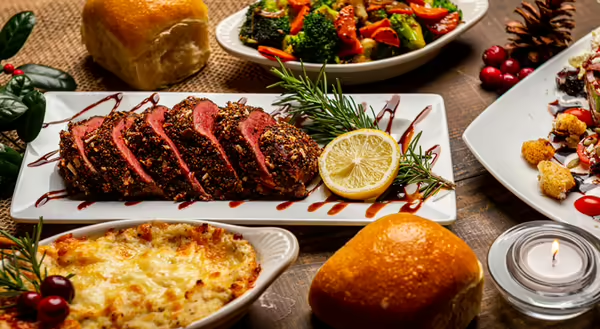
The holiday season is upon us! Let’s do our part to lessen food waste, preserve our household budgets and ensure that the food we serve our loved ones is safe.
Food waste/budget:
Did you have too many leftovers last year? (Food waste in the US is astronomical, up to 40% of our food supply ends up in a landfill!) Let’s do our part to avoid throwing food away and bonus—spend less at the grocery.
- Make less—think about what was left at your last holiday gathering and plan accordingly, for example: if you had half of a 13 x 9 pan of dressing or cake or layered salad left over—make a 9 x 9 this year—using only half of the ingredients will save you money and you will throw less away. Consider offering fewer choices, do you need 4 desserts?
- Check your pantry and freezer, you might have ingredients left from last year (canned and frozen items will be safe), if spices are fragrant they are fine.
- Swap ingredients, use half margarine and half butter where the recipe calls for either, using half butter will provide ample flavor, and half margarine will save money ----use less total fat (try trimming your recipe by 1/3) or substitute unsweetened applesauce for ½ the fat!
- Use less expensive versions of ingredients, for example: nuts pieces rather than halves, canned fruits rather than fresh, chicken rather than veal.
- Purchase around ¾ pound of turkey per adult. Look for “loss leader” sales at your local grocery. Stores offer sales on holiday staples to get you in the door.
- Try store brands—no one will know the difference.
- Watch for sales on meats and other specialty ingredients either shortly before or after holidays, planning ahead for the weeks after a holiday can save money on regular meals.
- Plan wisely during November—have a meatless day each week, cook breakfast for supper on a busy night, and use your slow cooker to avoid the drive-through on nights when you are pressed for time.
Food Safety:
- Wash your hands and all food contact surfaces before and after food preparation.
- Thaw your turkey in the fridge, bottom self, in a rimmed baking pan. Allow 24 hours for every 5 pounds of turkey—then add an extra day to make sure it is completely thawed.
- Do NOT wash the turkey before cooking. The cooking process will kill all bacteria, washing only causes the bacteria to splatter on your kitchen surfaces.
- Cook your turkey to a safe temperature: 180 ° in the thigh and 170° in the breast. If your bird is stuffed, the stuffing should reach 165 °. Always use a thermometer!
- Leftovers should be stored in small (4 inches deep) containers and placed in the refrigerator within 2 hours of the meal. Reheat leftovers to 165°.
Visit Illinois Extension https://extension.illinois.edu/turkey for more information, food safety tips, how to cook a turkey, activities for your family and recipes for side dishes and leftovers.